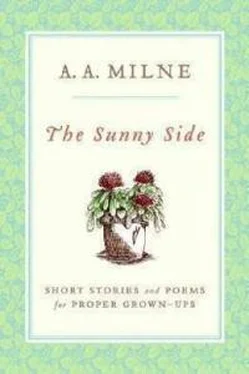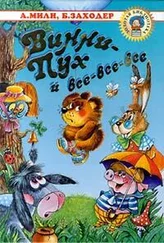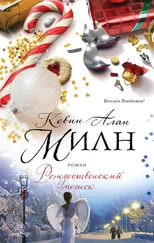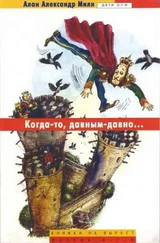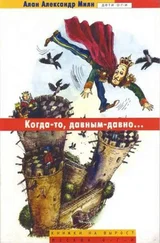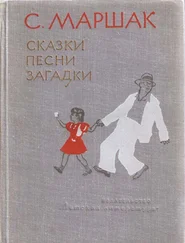* * * * *
It is well understood in Olympus that Porkins must not be disappointed. What will happen to him in the next world I do not know, but it will be something extremely humorous; in this world, however, he is to have all that he wants. Accordingly the gods got to work.
In the little village of Ospovat, which is in the southeastern corner of Ruritania, there lived a maiden called Maria Strultz, who was engaged to marry Captain Tomsk.
"I fancy," said one of the gods, "that it might be rather funny if Maria jilted the Captain. I have an idea that it would please Porkins."
"Whatever has Maria—" began a very young god, but he was immediately suppressed.
"Really," said the other, "I should have thought it was sufficiently obvious. You know what these mortals are." He looked round to them all. "Is it agreed then?"
It was agreed.
So Maria Strultz jilted the Captain.
Now this, as you may imagine, annoyed Captain Tomsk. He commanded a frontier fort on the boundary between Ruritania and Essenland, and his chief amusement in a dull life was to play cards with the Essenland captain, who commanded the fort on the other side of the river. When Maria's letter came, he felt that the only thing to do was to drown himself; on second thoughts he decided to drown his sorrows first. He did this so successfully that at the end of the evening he was convinced that it was not Maria who had jilted him, but the Essenland captain who had jilted Maria; whereupon he rowed across the river and poured his revolver into the Essenland flag which was flying over the fort. Maria thus revenged, he went home to bed, and woke next morning with a bad headache.
(" Now we're off," said the gods in Olympus .)
In Diedeldorf, the capital of Essenland, the leader–writers proceeded to remove their coats.
"The blood of every true Essenlander," said the leader–writer of the "Diedeldorf Patriot", after sending out for another pot of beer, "will boil when it hears of this fresh insult to our beloved flag, an insult which can only be wiped out with blood." Then seeing that he had two "bloods" in one sentence, he crossed the second One out, substituted "the sword," and lit a fresh cigarette. "For years Essenland has writhed under the provocations of Ruritania, but has preserved a dignified silence; this last insult is more than flesh and blood can stand." Another "blood" had got in, but it was a new sentence and he thought it might be allowed to remain. "We shall not be accused of exaggeration if we say that Essenland would lose, and rightly lose, her prestige in the eyes of Europe if she let this affront pass unnoticed. In a day she would sink from a first–rate to a fifth–rate power." But he didn't say how.
The Chancellor of Essenland, in a speech gravely applauded by both sides of the House, announced the steps he had taken. An ultimatum had been sent to Ruritania demanding an apology, an indemnity of a hundred thousand marks, and the public degradation of Captain Tomsk, whose epaulettes were to be torn off by the Commander–in–Chief of the Essenland Army in the presence of a full corps of cinematograph artists. Failing this, war would be declared.
Ruritania offered the apology, the indemnity, and the public degradation of Captain Tomsk, but urged that this last ceremony would be better performed by the Commander–in–Chief of the Ruritanian Army; otherwise Ruritania might as well cease to be a sovereign state, for she would lose her prestige in the eyes of Europe, and sink to the level of a fifth–rate power.
There was only one possible reply to this, and Essenland made it. She invaded Ruritania.
("Aren't they wonderful?" said the gods in Olympus to each other .
" But haven't you made a mistake?" asked the very young god. "Porkins lives in England, not Essenland ."
" Wait a moment," said the others.)
* * * * *
In the capital of Borovia the leader–writer of the "Borovian Patriot" got to work. "How does Borovia stand?" he asked. "If Essenland occupies Ruritania, can any thinking man in Borovia feel safe with the enemy at his gates?" (The Borovian peasant, earning five marks a week, would have felt no less safe than usual, but then he could hardly be described as a thinking man.) "It is vital to the prestige of Borovia that the integrity of Ruritania should be preserved. Otherwise we may resign ourselves at once to the prospect of becoming a fifth–rate power in the eyes of Europe." And in a speech, gravely applauded by all parties, the Borovian Chancellor said the same thing. So the Imperial Army was mobilized and, amidst a wonderful display of patriotic enthusiasm by those who were remaining behind, the Borovian troops marched to the front….
_("And there you are," said the gods in Olympus.
"But even now—" began the very young god doubtfully.
"Silly, isn't Felicia the ally of Essenland; isn't Marksland the ally of Borovia; isn't England the ally of the ally of the ally of the Country which holds the balance of power between Marksland and Felicia?"
"But if any of them thought the whole thing stupid or unjust or—"
"Their prestige," said the gods gravely, trying not to laugh.
"Oh, I see," said the very young god.)_
* * * * *
And when a year later the hundred–thousandth English mother woke up to read that her boy had been shot, I am afraid she shed foolish tears and thought that the world had come to an end.
Poor short–sighted creature! She didn't realize that Porkins, who had marched round in ninety–six the day before, was now thoroughly braced up.
("What babies they all are," said the very young god.)
Same old crossing, same old boat, Same old dust round Rouen way, Same old narsty one–franc note, Same old "Mercy, sivvoo play"; Same old scramble up the line, Same old 'orse–box, same old stror, Same old weather, wet or fine, Same old blooming War.
Ho Lor, it isn't a dream, It's just as it used to be, every bit; Same old whistle and same old bang, And me out again to be 'it.
'Twas up by Loos I got me first; I just dropped gently, crawled a yard And rested sickish, with a thirst— The 'eat, I thought, and smoking 'ard…. Then someone 'ands me out a drink, What poets call "the cooling draft," And seeing 'im I done a think: " Blighty," I thinks—and laughed.
I'm not a soldier nacheral, No more than most of us to–day; I runs a business with a pal (Meaning the Missis) Fulham way; Greengrocery—the cabbages And fruit and things I take meself, And she has dafts and crocuses A–smiling on a shelf.
"Blighty," I thinks. The doctor knows; 'E talks of punctured damn–the–things. It's me for Blighty. Down I goes; I ain't a singer, but I sings. "Oh, 'oo goes 'ome?" I sort of 'ums; "Oh, 'oo's for dear old England's shores?" And by–and–by Southampton comes— "Blighty!" I says, and roars.
I s'pose I thort I done my bit; I s'pose I thort the War would stop; I saw meself a–getting fit With Missis at the little shop; The same like as it used to be, The same old markets, same old crowd, The same old marrers, same old me, But 'er as proud as proud….
* * * * *
The regiment is where it was, I'm in the same old ninth platoon; New faces most, and keen becos They thinks the thing is ending soon; I ain't complaining, mind, but still, When later on some newish bloke Stops one and laughs, "A blighty, Bill," I'll wonder, "Where's the joke?"
Same old trenches, same old view, Same old rats as blooming tame, Same old dug–outs, nothing new, Same old smell, the very same, Same old bodies out in front, Same old strafe from 2 till 4, Same old scratching, same old 'unt. Same old bloody War.
Читать дальше
